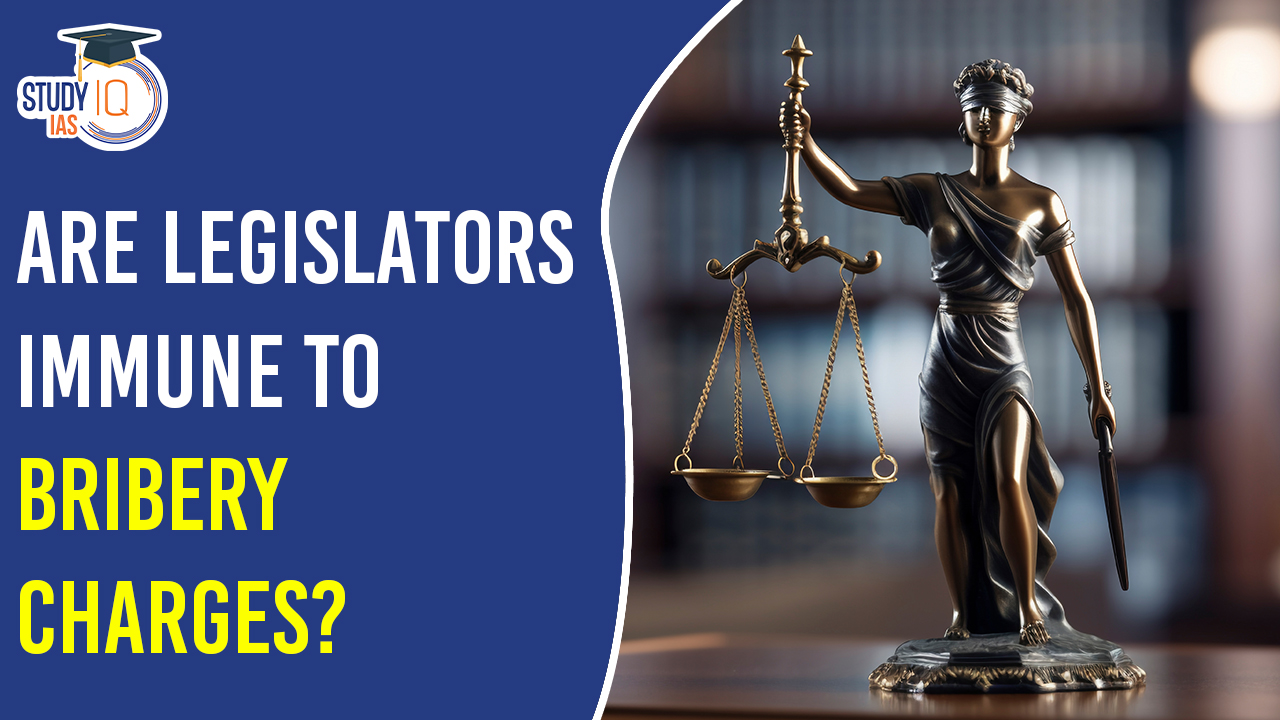Table of Contents
Context: The Supreme Court of India in a recent judgement clarified that legislators cannot claim immunity for bribery. This affirms the judiciary’s role in maintaining integrity within legislative processes.
Background of the Case
- The case centred around Sita Soren, a member of the Jharkhand Mukti Morcha (JMM), accused of accepting a bribe for her vote in the 2012 Rajya Sabha elections.
- After the Jharkhand High Court dismissed Sita Soren’s plea for immunity under Article 194(2), the matter escalated to the Supreme Court.
- The Supreme Court’s seven-judge Bench revisited the issue, previously deliberated in the 1998 P.V. Narasimha Rao case, regarding the extent of legislative immunity in cases of bribery.
The 1998 Ruling and Its Overruling
- In 1998, the majority of the Supreme Court’s bench ruled in favour of extending constitutional legislative immunity to cases similar to the one involving Shibu Soren, who was accused of accepting bribes to influence a parliamentary vote.
- The 2023 Supreme Court Bench, however, overruled this precedent, clarifying the limitations of legislative immunity in cases of bribery.
Supreme Court’s Clarification on Legislative Immunity
- Chief Justice Chandrachud, leading the Bench, emphasised that legislative privileges are intended to support free debate and deliberation within the legislature.
- He introduced a two-fold test for asserting such privilege:
- it must be linked to the collective functioning of the House and
- necessary for performing essential legislative duties.
- The Court specified that bribery does not fall under the protective umbrella of Articles 105(2) and 194, as it undermines the very purpose of these privileges by influencing a member’s vote or speech through illicit means.
We’re now on WhatsApp. Click to Join
Implications for Legislative Conduct and Judiciary
- The offence of bribery is recognized as complete upon the acceptance of a bribe by a legislator, irrespective of the subsequent action or location of the bribery.
- The Court dismissed arguments against its jurisdiction, asserting that criminal prosecution and disciplinary action by the House are parallel and distinct mechanisms for addressing misconduct.
- The principles laid out in the verdict apply to Rajya Sabha elections and the appointments of the President and Vice-President, challenging the prior understanding set in Kuldip Nayar vs. Union of India (2006).


 National Judicial Appointments Commissio...
National Judicial Appointments Commissio...
 GPS Spoofing and Its Impact in India: A ...
GPS Spoofing and Its Impact in India: A ...
 Amrit Gyaan Kosh Portal: A Comprehensive...
Amrit Gyaan Kosh Portal: A Comprehensive...





















